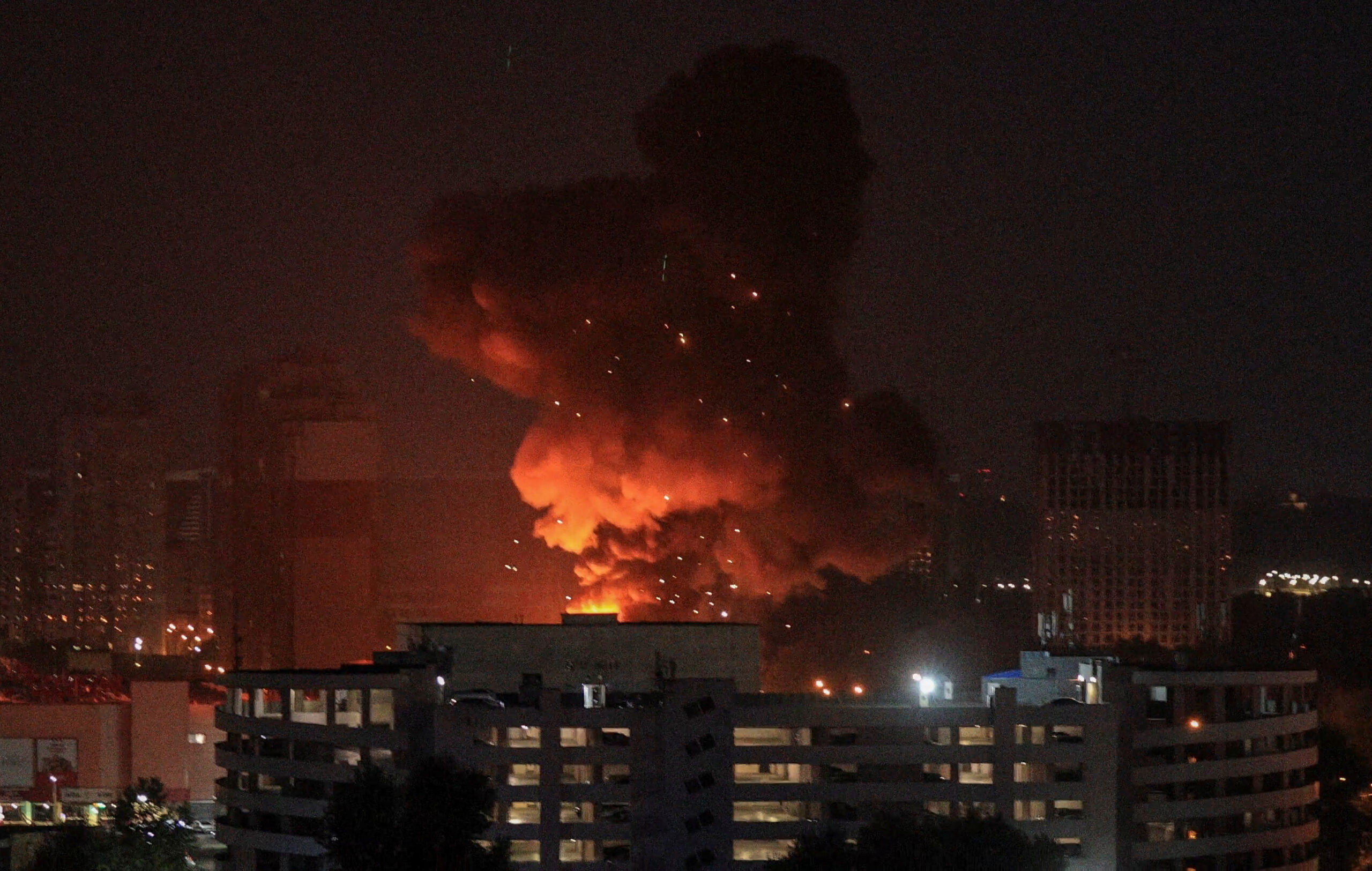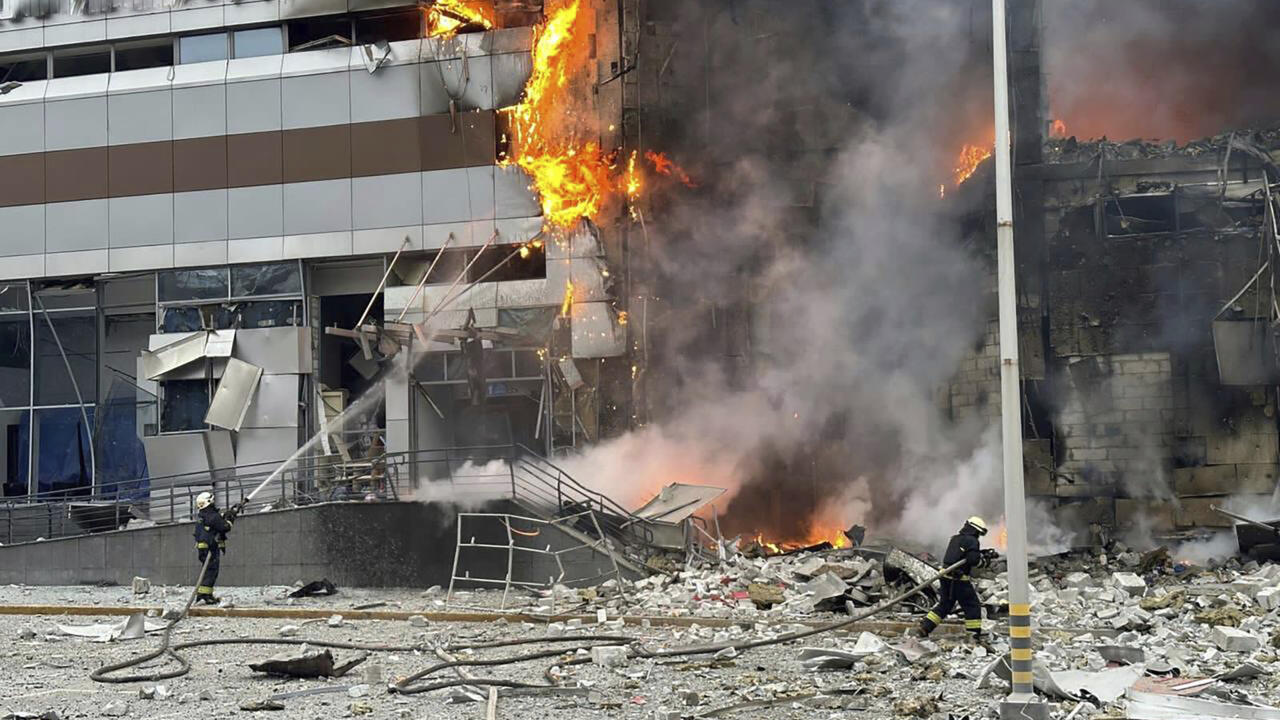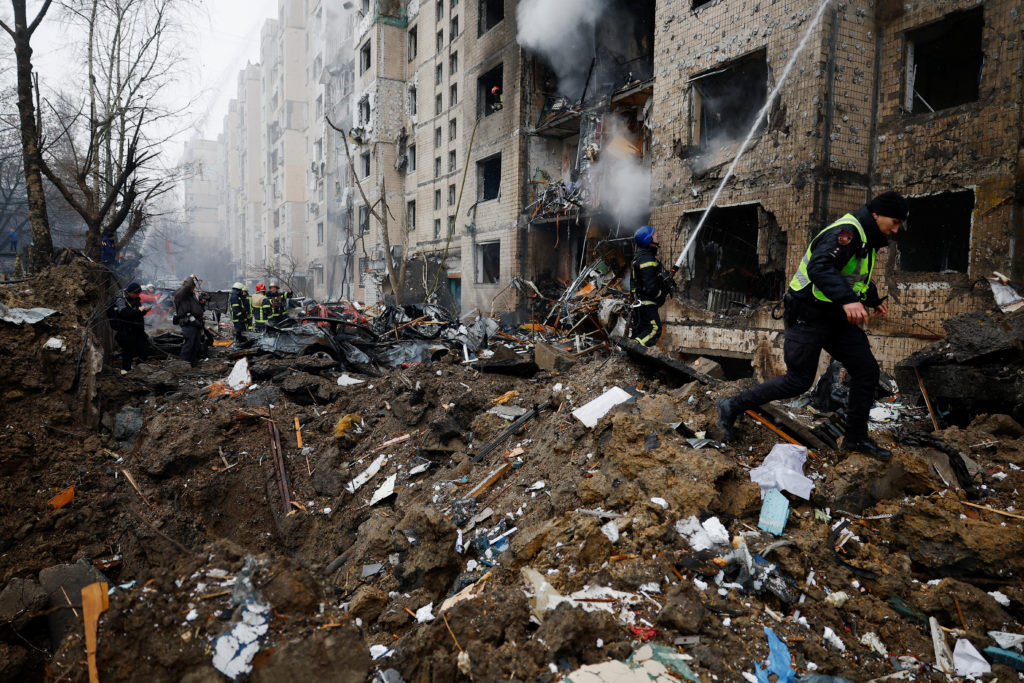
In the early hours of April 24, 2025, Kyiv experienced one of the most devastating attacks since the onset of the conflict. Russian forces launched a coordinated assault involving drones and ballistic missiles, targeting multiple districts within the capital. The Ukrainian Air Force reported detecting and tracking 215 enemy air targets, with 112 intercepted. Despite these defense efforts, the sheer volume and intensity of the attack overwhelmed the city’s air defense systems, leading to significant destruction.
Casualties and Injuries Reported
The assault resulted in the deaths of at least nine individuals and left over 80 injured, including six children. Emergency services reported that 42 people were hospitalized due to the attack. The casualties underscore the human cost of the ongoing conflict and the vulnerability of civilian populations amidst escalating hostilities.
Impact on Kyiv’s Infrastructure and Civilians
Damage to Residential Areas
The missile and drone strikes caused extensive damage across several residential districts in Kyiv, including Sviatoshynskyi, Shevchenkivskyi, and Holosiivskyi. Fires erupted in multiple locations, and numerous buildings were reduced to rubble. The destruction not only displaced countless residents but also disrupted essential services, compounding the challenges faced by the city’s inhabitants.
Emergency Response and Rescue Operations
In the aftermath of the attack, emergency response teams were deployed across the affected areas. Rescue operations involved climbing specialists and sniffer dogs working tirelessly to locate and extract individuals trapped beneath the debris. The swift mobilization of emergency services played a crucial role in mitigating further loss of life and providing immediate assistance to the injured.
Ukrainian Government’s Reaction
President Zelenskyy’s Immediate Actions
President Volodymyr Zelenskyy, who was on an official visit to South Africa at the time of the attack, promptly announced his decision to cut the trip short and return to Kyiv. His swift response aimed to demonstrate solidarity with the affected citizens and to coordinate the government’s response to the crisis.
Statements from Ukrainian Officials
Ukrainian officials condemned the attack as a blatant act of aggression and a violation of international law. They emphasized the need for enhanced air defense capabilities and called upon international allies to provide additional support to safeguard Ukrainian sovereignty and protect civilians from further assaults.
International Response and Diplomatic Implications
Global Condemnation and Calls for Action
The international community responded with widespread condemnation of the attack. Leaders from various countries denounced the targeting of civilian areas and called for immediate cessation of hostilities. Humanitarian organizations also highlighted the urgent need for aid and support for the affected populations.
Effects on Ongoing Peace Negotiations
The attack has further complicated ongoing peace negotiations. Former U.S. President Donald Trump criticized President Zelenskyy for resisting peace concessions, including recognizing Russia’s annexation of Crimea. However, Zelenskyy reaffirmed Ukraine’s constitutional claim to Crimea and expressed optimism about achieving peace through continued partnership with the U.S. and allies.
Historical Context of Russian Attacks on Kyiv

Previous Major Strikes and Their Consequences
This recent attack is part of a series of assaults on Kyiv since the beginning of the conflict. Notably, on July 8, 2024, a massive missile attack resulted in the deaths of at least 47 people, including two adults at the Okhmatdyt children’s hospital. Such incidents have had profound impacts on the city’s infrastructure and the morale of its residents.
Patterns in Targeting Civilian Infrastructure
Analysis of past attacks reveals a concerning pattern of targeting civilian infrastructure, including hospitals, residential buildings, and public utilities. These actions have been widely condemned as violations of international humanitarian law and have prompted calls for accountability and justice for the victims.





















